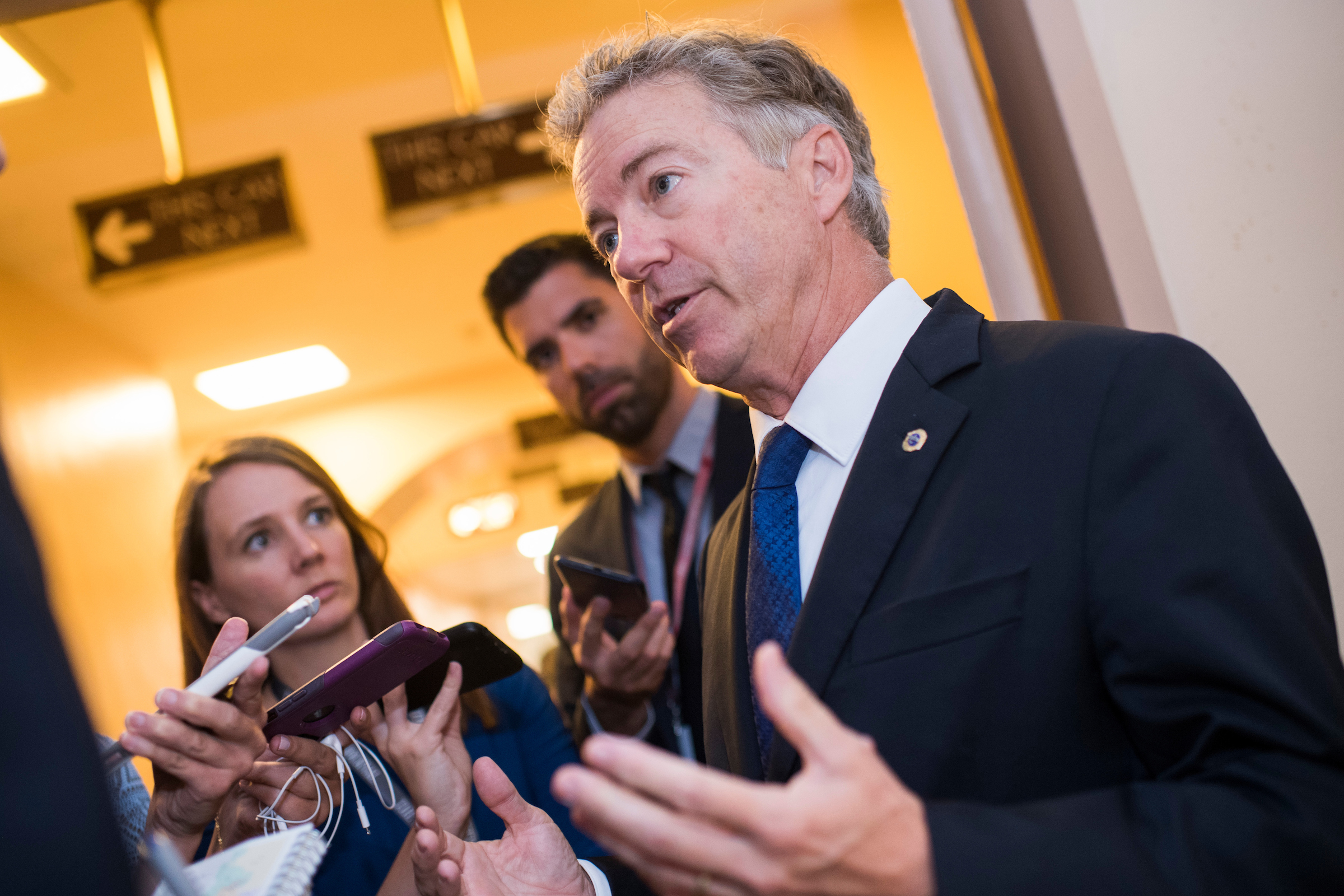Opinion: The Politics of Drug Policy
Lawmakers appear to be setting up a strategy of contradictions

It’s an intractable issue in the news daily, so the proposed, much-debated and now-delayed Senate Republican health care bill had to do something to answer the opioid addiction crisis in America. Add to that the basic political realization that in many of the states that supported Donald Trump and Republicans, a high percentage of people are hurting — to turn a blind eye would be a problem for America and for the GOP on many levels.
Many fear the Senate bill is not enough to meet a challenge that is intertwined with unemployment, the economy and more. Though, at least — and some would label it the very least — the uncertain yet compassionate reaction contrasts with the harsh strategy the Justice Department has laid out for other low-level drug offenders.
So while establishing a drug policy in America, one that would fight the disease of addiction as well as the crime and violence that arise from the drug business, our lawmakers and leaders would seem to be setting up a strategy of contradictions.
A compromise on Medicaid?
One of the holdups over the current Senate proposal is, of course, disagreement on the expansion of Medicaid. For more conservative senators, such as Rand Paul of Kentucky and Mike Lee of Utah, anything resembling “Obamacare lite,” as Paul put it, will never pass muster.
But Sen. Rob Portman of Ohio said in a joint statement with fellow Republican Sen. Shelley Moore Capito of West Virginia: “The Senate draft before us includes some promising changes to reduce premiums in the individual insurance market, but I continue to have real concerns about the Medicaid policies in this bill.” Their states have been especially hard hit by the addiction crisis, with many residents depending on Medicaid to fund life-saving treatment.
The two senators initially suggested $45 billion for the opioid fight, while the bill adds just $2 billion. Advocates say that is not nearly enough, especially when the counseling and mental health support Medicaid pays for are included in the essential follow-up services.
Ohio Gov. John Kasich, a Republican, has chimed in, linking his criticism of the bill to other goals.
“Everything we’re talking about now, getting people healthy, giving them health care, is designed to get them to work,” Kasich told CNN. “It’s designed to give them an opportunity to have a better life.”
Their concern crosses party lines, with Ohio Democratic Sen. Sherrod Brown saying, “This bill takes away the No. 1 tool we have in the fight against opioids — Medicaid treatment.”
Ultimately, because the two sides are so far apart — and that’s just in the GOP — the chance that a bill could satisfy one side without alienating the other, even with Senate Majority Leader Mitch McConnell making a deal, is slim even after the July 4 break. By then, more and more people would have gotten a chance to actually read the proposal and react.
But if it seems a contradiction that Donald Trump and his Chris Christie-led Commission on Combating Drug Addiction and the Opioid Crisis counsel understanding, if not a dollar amount everyone agrees is sufficient, while Kellyanne Conway controversially said on ABC that the solution is partly a matter of “will,” the decision of Attorney General Jeff Sessions and the Justice Department to return to drug policies that would turn the clock back is on another planet altogether.
Punishment as policy
Sessions has said his rollback to maximum minimum sentencing for low-level, nonviolent drug offenses is an attempt to lower crime rates. But it most closely resembles former President Richard Nixon’s harsh drug war that ended with minor drug users, most of them African-American, imprisoned — which was the point, according to interviews published this year with John Ehrlichman, his onetime domestic policy chief.
The communities Sessions says he wants most to protect have actually been devastated by harsh sentencing and mass incarceration. The majority of Americans in these communities, the same that were apparent targets of Nixon’s retribution, have not, for the most part, been on the receiving end of kind words from the president and his administration. Its guiding principle is to obliterate anything associated with President Barack Obama.
With a cutback on Medicaid services and tough talk from justice, there are few bright spots for those used to not getting a break, unless you point to the irony of Rand Paul. Though he doesn’t think the Senate bill is conservative enough, he also opposes Sessions’ return to harsh drug sentencing.
More contradictions in the path to a consistent and compassionate health care and drug policy.
Roll Call columnist Mary C. Curtis has worked at The New York Times, The Baltimore Sun and The Charlotte Observer. Follow her on Twitter @mcurtisnc3.





